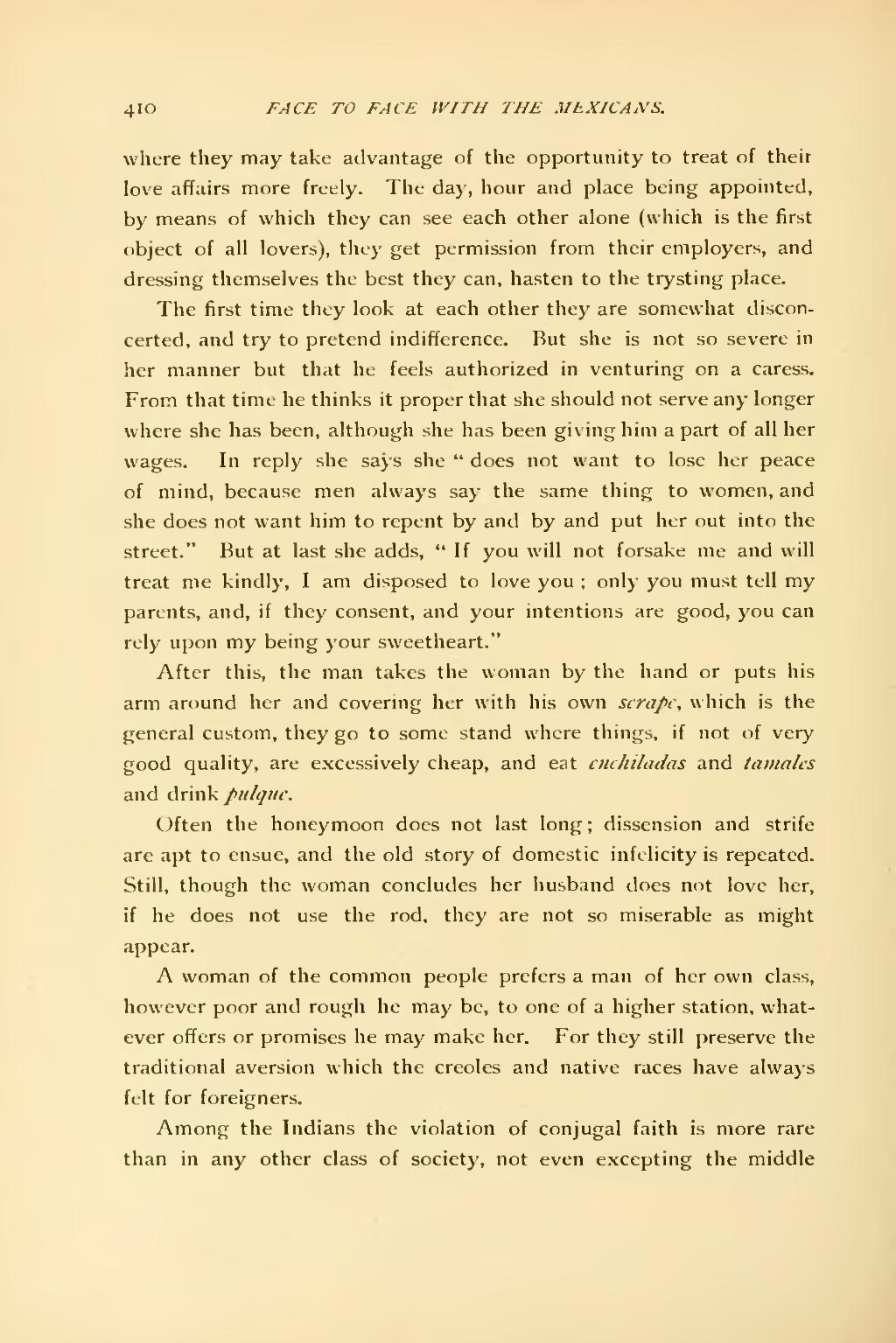where they may take advantage of the opportunity to treat of their love affairs more freely. The day, hour and place being appointed, by means of which they can see each other alone (which is the first object of all lovers), they get permission from their employers, and dressing themselves the best they can, hasten to the trysting place.
The first time they look at each other they are somewhat disconcerted, and try to pretend indifference. But she is not so severe in her manner but that he feels authorized in venturing on a caress. From that time he thinks it proper that she should not serve any longer where she has been, although she has been giving him a part of all her wages. In reply she says she "does not want to lose her peace of mind, because men always say the same thing to women, and she does not want him to repent by and by and put her out into the street." But at last she adds, "If you will not forsake me and will treat me kindly, I am disposed to love you; only you must tell my parents, and, if they consent, and your intentions are good, you can rely upon my being your sweetheart."
After this, the man takes the woman by the hand or puts his arm around her and covering her with his own serape, which is the general custom, they go to some stand where things, if not of very good quality, are excessively cheap, and eat enchiladas and tamales and drink pulque.
Often the honeymoon does not last long; dissension and strife are apt to ensue, and the old story of domestic infelicity is repeated. Still, though the woman concludes her husband does not love her, if he does not use the rod, they are not so miserable as might appear.
A woman of the common people prefers a man of her own class, however poor and rough he may be, to one of a higher station, whatever offers or promises he may make her. For they still preserve the traditional aversion which the Creoles and native races have always felt for foreigners.
Among the Indians the violation of conjugal faith is more rare than in any other class of society, not even excepting the middle
